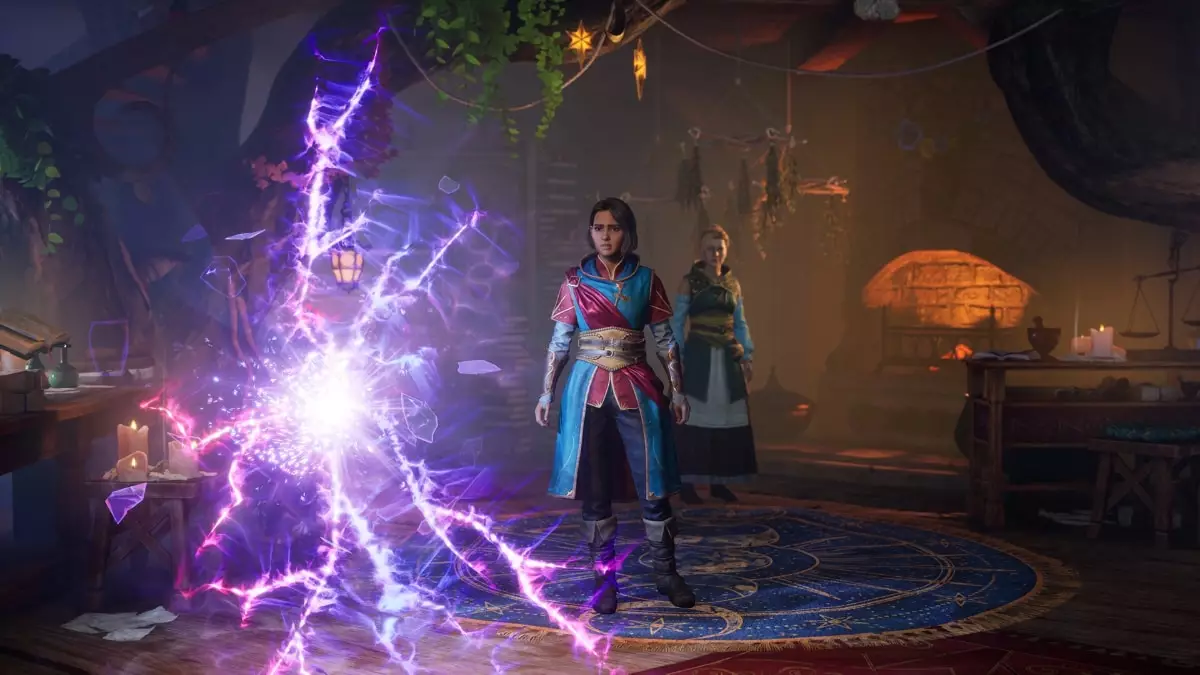The announcement of the GameShare feature for Nintendo’s upcoming Switch 2 is a bold and strategic move. Electronic Arts has proposed a solution that seems to bridge the gap between two gaming generations—the original Switch and its successor. GameShare allows players to share a single copy of a game locally, creating opportunities for social gaming that has always marked the Nintendo experience. However, the inherent complexities of this arrangement raise questions about its execution and overall value to the gaming community.
At first glance, the ability for a Switch 2 owner to play with a friend using an original Switch seems revolutionary. But consider the caveats: the Switch 2 comes with its own limitations, requiring that only games specifically designed for the next-gen console can initiate such sharing. This contradiction presents a convoluted landscape for gamers. Does this feature genuinely foster a sense of community, or does it merely serve as bait to entice players into the newer system?
The Two-Tiered Gaming Experience
The split between console generations is a familiar headache in the gaming realm, but the GameShare feature could exacerbate this divide. EA’s declaration that Hazelight’s co-op title, Split Fiction, will be compatible with the original Switch courtesy of GameShare contradicts Nintendo’s own guidelines, which seem to indicate that only Switch 2-compatible games can be shared. We find ourselves in a paradoxical situation where the promise of connectivity breeds confusion rather than clarity. What happens when a player—one presumably excited to share the experience with a friend—encounters technical limitations or unanticipated restrictions during gameplay?
In an age where cross-play functionality has emerged as a standard expectation, it’s baffling that Nintendo and EA have treaded this precarious path. Gamers are increasingly demanding seamless interactions among platforms—not just across generations—but also universally between various devices. With the promise of cross-play support for Split Fiction, the anticipation is palpable. However, one has to wonder if these mechanisms will genuinely work as proposed or if they are merely aspirational claims designed for marketing hype.
Does Community or Profit Drive Innovation?
The Friend’s Pass feature in Hazelight’s games has been lauded for its commitment to community gaming, allowing players to experience the game with a buddy without both needing to own it. While this appears generous, it warrants deeper scrutiny. This type of structure seems to unveil the question of whether the underlying motivation is community building or profit maximization. After all, if gamers can explore titles online without needing to purchase an additional copy, what does this do for the developers’ bottom line?
Are we witnessing a genuine invitation to unite the community, or are developers simply attempting to expand their market share in a landscape increasingly dominated by major players? Allowing access through such methods only scratches the surface of the pressing need for inclusivity in gaming. Genuine innovations should speak to the desires of players rather than obfuscate expectations with convoluted policy frameworks.
The Price Point Dilemma
As with any new game launch, the price tag typically plays a pivotal role in shaping consumer response; Split Fiction will debut at $49.99. In today’s gaming world, value is king. Players don’t just consider the price of a game but its potential to deliver immersive and communal experiences. Is it worth the investment for a game that straddles the line between two consoles? Can EA and Nintendo deliver a full-bodied experience that transcends the financial barrier?
Moreover, the pre-order incentives and general marketing strategies surrounding this launch could either bolster or hinder its reception. If the gaming community feels misled about features like GameShare and cross-play, they may think twice before investing their hard-earned cash into a title that raises more questions than it answers.
The road to gaming innovation can be paved with both opportunity and uncertainty, but when leading companies fail to present a unified front, it opens the door to skepticism. For a community passionate about gaming, understanding the implications of features like GameShare will determine whether this latest release becomes a cherished addition to their collections or just another chapter in the long saga of missed potential.

Leave a Reply